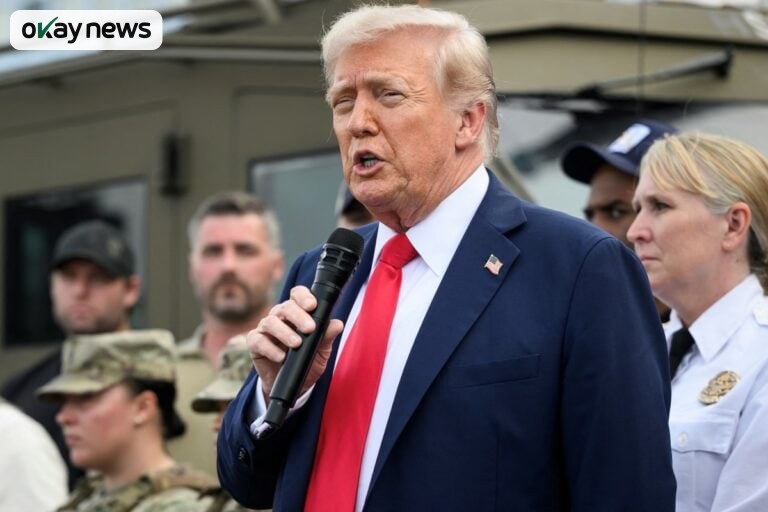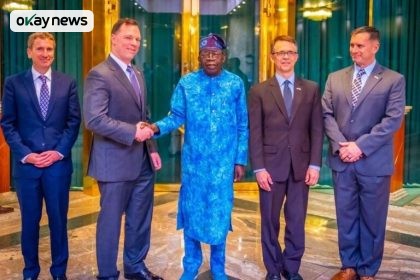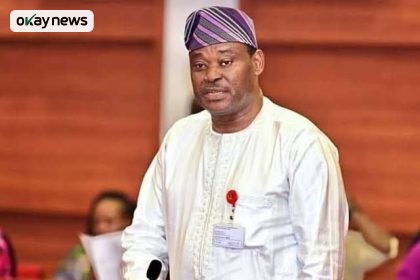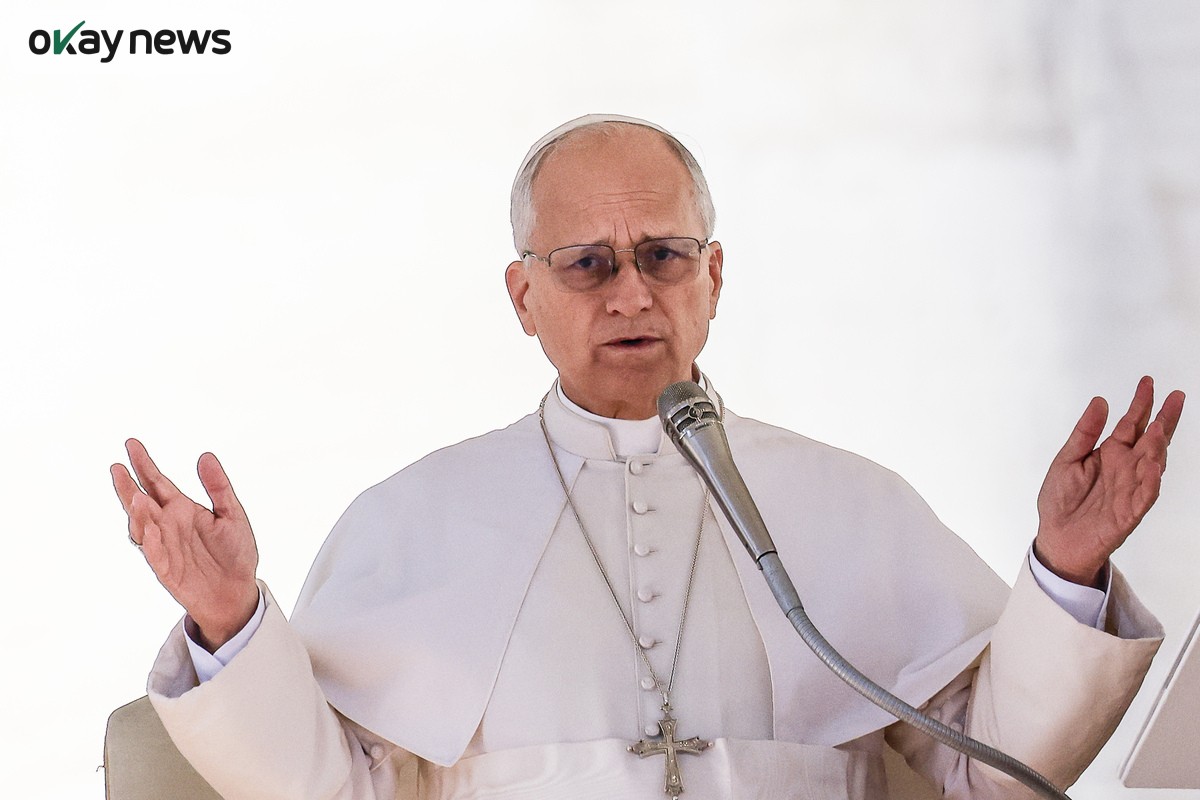Okay News reports that the United States military has reportedly drawn up a series of potential airstrike plans targeting insurgent strongholds in Nigeria, following a directive from U.S. President Donald Trump ordering the Pentagon to “prepare to intervene” over alleged attacks on Christians.
According to a report by The New York Times, the U.S. Africa Command (AFRICOM) submitted multiple contingency options to the Department of Defense in response to a request by Defense Secretary Pete Hegseth, who was asked to align U.S. military strategy with President Trump’s latest instructions.
Sources within the Pentagon revealed that the plans, described as heavy, medium, and light operations, propose varying levels of engagement.
Under the “heavy option,” the U.S. would deploy an aircraft carrier strike group to the Gulf of Guinea, supported by fighter jets or long-range bombers to hit militant targets deep within northern Nigeria, where extremist groups such as Boko Haram and Islamic State West Africa Province (ISWAP) have operated for over a decade.
The “medium option” involves using MQ-9 Reaper and MQ-1 Predator drones for precision strikes against insurgent camps and vehicles, while the “light option” would focus on intelligence sharing, logistical support, and joint operations with the Nigerian Armed Forces.
Military officials reportedly cautioned that limited airstrikes or drone operations would likely have minimal impact without a broader ground strategy — an approach that neither the Pentagon nor the U.S. Congress currently supports.
“Even precise drone operations can only achieve temporary disruption, not long-term stability, unless there is sustained engagement,” one senior U.S. defense official told The New York Times.
Okay News reports that the move follows President Trump’s recent public threat to deploy American troops to Nigeria if “genocide against Christians” continues. His comments have since ignited diplomatic tension between Abuja and Washington.
Meanwhile, the Government of the People’s Republic of China has voiced strong opposition to Trump’s directive. Speaking at a press briefing in Beijing, Chinese Foreign Ministry spokesperson Mao Ning said:
“As Nigeria’s comprehensive strategic partner, China firmly opposes any country using religion and human rights as an excuse to interfere in other countries’ internal affairs or threaten them with sanctions and force.”
The Nigerian Federal Government, through Information Minister Mohammed Idris, also dismissed the U.S. claims, describing them as “inaccurate and based on misrepresentation.”
“Nigeria faces terrorism, not religious persecution. Both Christians and Muslims have suffered from extremist violence,” Idris clarified.
“Since 2023, President Tinubu’s administration has neutralised over 13,500 militants and rescued more than 11,000 hostages. Nigeria remains open to U.S. collaboration on counterterrorism, but such cooperation must respect our sovereignty.”
He stressed that the government’s top priority remains the safety of all citizens “regardless of religious affiliation.”
Despite reassurances, President Trump reiterated on Wednesday that the United States “stands ready” to defend Christians in Nigeria if the alleged killings persist.
“Christianity is facing an existential threat in Nigeria,” Trump declared. “The United States cannot stand by while such atrocities happen. We are ready, willing, and able to save our great Christian population around the world.”
The remarks have sparked fresh debate in Washington D.C., with analysts warning that unilateral action in Nigeria could strain U.S. relations with West Africa, where counterterrorism partnerships depend on regional cooperation.
Security experts also cautioned that such intervention could escalate tensions across the Sahel, already destabilised by multiple coups and growing anti-Western sentiment.
As diplomatic exchanges continue, observers say the situation underscores the fragile balance between sovereignty, religion, and global security in U.S.-Africa relations.







